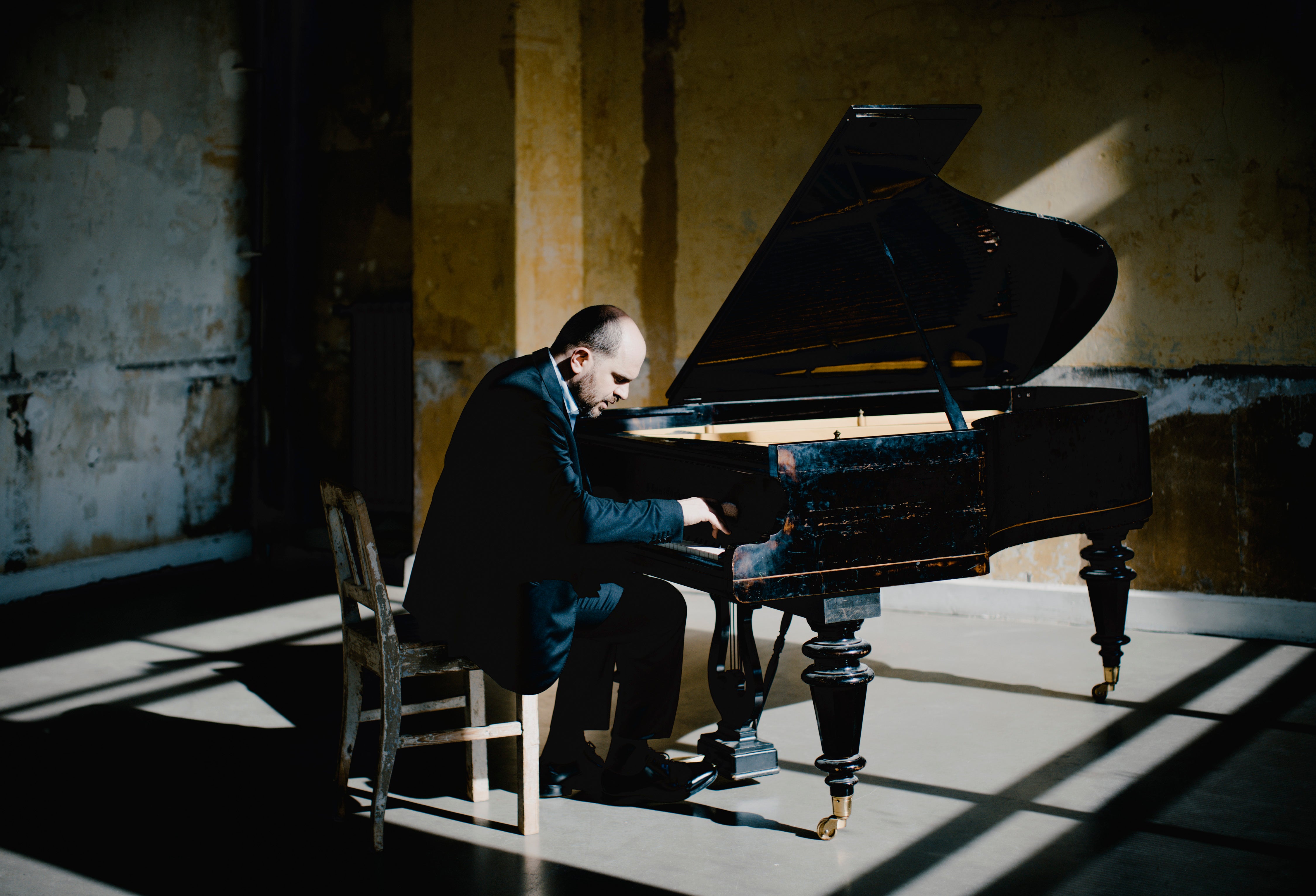Classical reviews: Vivaldi, Beethoven and Thomas Adès
Avi Avital presents music written expressly for the mandolin, while the pianist Kirill Gerstein performs Adès’s works in an exhilarating hour of beauty and strangeness

Avi Avital: Art of the Mandolin
Avi Avital, mandolin
Deutsche Grammophon 4838534
★★ ★ ★ ★
“The mandolin,” says Avi Avital, “is a beautiful thing. It’s very intuitive, and its small dimensions mean it can fit into any hands. It’s ideal for amateurs, as it’s not a threatening instrument.” And he points out that if you look at any musical culture in the world, no matter how ancient, you’ll find that the main melodic instrument will have plucked strings.
His sketch of the mandolin’s history reflects its global reach: It was first introduced to the Medici court in 17th century Italy via a French instrument called a mandore. At that time it was mainly associated with the aristocracy, a salon instrument which educated young maidens of noble birth would play. But the instrument has spread far and wide. Japan today is the number one country for amateur mandolin playing; in Tokyo, there are 130 clubs.
In the first thirty years of the 20th century, Jewish and Italian immigrants took it all over the US, where it combined with Irish music and bluegrass. But when classical musicians play it, it tends to be in arrangements of works written for other instruments. What this enterprising Israeli musician has done here is present music written expressly for the mandolin, and very enjoyable it is. It begins with pieces by Vivaldi and Beethoven, and winds up with a specially-commissioned piece by David Bruce, combining the mandolin with guitar, harp, theorbo, and harpsichord.
Thomas Adès : In Seven Days
Kirill Gerstein, piano; Tanglewood Music Center Orchestra; Thomas Adès, conductor
Myrios MYR027
★★ ★ ★ ★
Since 2012 this has been both a keyboard partnership and also a creative one between Kirill Gerstein and Thomas Adès. Berceuse, the Mazurkas, and the Concert Paraphrase on Powder Her Face were all written for the Russian-American pianist Gerstein to perform. This CD makes an exhilarating hour of beauty and strangeness.
The two-piano Powder Her Face paraphrase is an expansion of the original solo one Adès made, and, as Gerstein points out it, allows the two instruments to play resonantly off each other. Contrasting with the cheeky pastiches of Powder Her Face, Berceuse is poised and exquisitely tender, and the Mazurkas – Chopinesque in gesture and rhythm – feel like a translation into a parallel musical language that is somehow entirely recognisable.
Adès has given In Seven Days a clear literary programme – Gerstein describes it as being about the birth of the universe – but for me, it’s simply a triumphant cavalcade of delicately glittering and gloriously sensuous effects.



Join our commenting forum
Join thought-provoking conversations, follow other Independent readers and see their replies
Comments